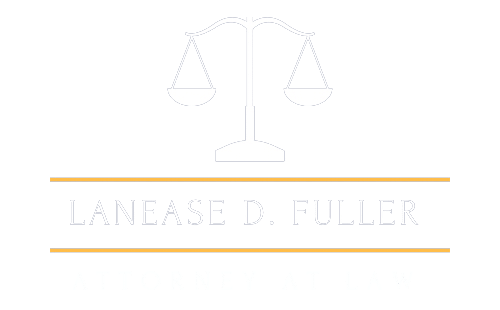If you are a renter that has run into issues with the owner of your property that violate your rights you may wonder how to best protect yourself. Working with an experienced attorney can help you to take legal action in the form of filing a complaint, filing a lawsuit, or fighting against a landlord that is trying to evict you without proper reasoning.
Attorney Lanease D. Fuller works with renters to help them protect the following rights as outlined by the Texas Attorney General’s Office:
Peace and Quiet
Your rights as a tenant include the right to “quiet enjoyment,” a legal term. This means your landlord cannot evict you without cause or otherwise disturb your right to live in peace and quiet.
If other tenants in your building are disturbing you, you should complain to the landlord. Of course, you may not disturb other tenants either.
Except under certain circumstances and subject to certain conditions, a landlord may not interrupt utilities to a tenant unless the interruption results from bona fide repairs, construction, or an emergency.
Health and Safety
You have a right to demand that the landlord repair any condition that materially affects your physical health or safety.
Justices of the peace have authority to order landlords to repair or remedy conditions affecting a tenant’s physical health or safety, as long as the cost of the repair does not exceed $10,000. Tenants can go to justice court without an attorney to obtain a repair order. § 92.0563.
Unless the need for repair was created by “normal wear and tear,” the landlord does not have a duty to repair problems caused by you, another lawful occupant, a member of your household, or your guests. Under certain conditions, you and the landlord may have a written agreement that you will make needed repairs.
The landlord must also provide smoke detectors. Pursuant to the Texas Property Code Chapter 92, Subchapter F, you may not waive that provision, and you may not disconnect or disable the smoke detector.
Security Devices
Although there are some specific exceptions, under the Texas Property Code Chapter 92, Subchapter D, a dwelling must be equipped with security devices such as window latches, keyed dead bolts on exterior doors, sliding door pin locks and sliding door handle latches or sliding door security bars, and door viewers.
These devices must be installed at the landlord’s expense. If such devices are missing or are defective, you have the right to request their installation or repair.
When You Can Sue Your Landlord
When You Face Housing Discrimination
Federal law states that landlords can’t discriminate against tenants based on their race, religion, sex, national origin, or familial status. If your landlord discriminates against you, then you should take the case to your state HUD where they will do the proper investigation and take action.
When Your Landlord Doesn’t Return Your Security Deposit on Time/Takes Your Deposit Illegally
If you took good care of the unit during your stay, your landlord must return your security deposit after you move out.
Note: Your landlord may be able to take part or all of your security deposit if:
- The unit is damaged beyond normal wear and tear
- You did not pay your rent (called “nonpayment of rent”)
- You did not pay your utility bills
If your landlord keeps your security deposit illegally, then you can take them to court.
When Your Rental Unit Is Inhabitable
As a tenant, you have the legal right of implied warranty of habitability. This includes ensuring that you have access to basic necessities like hot water and heat.
In these situations, you must first notify your landlord asking them to solve the problem. If they fail to do so, you can make the repairs yourself and withhold rent. You can also take the case to small claims court.
When the Property Owner Interferes With Your Right to Quiet Enjoyment
You have the right to quiet enjoyment in your rental property. That means landlords can’t enter your unit without giving you reasonable notice. They can also only enter the unit for reasons allowed under your state laws and the rental agreement.
If a landlord enters your property without notice, you can try suing them to prevent them from entering your property without notice in the future.
When Your Landlord Fails to Make Necessary Repairs
It is the landlord’s responsibility to make the necessary repairs to damages that make the unit unsafe or healthy. If your landlord refuses to make repairs after you notified them or they refuse to reimburse you after you made repairs, then you have the right to sue.
When You Get Injured at the Rental Property
You may be able to sue your landlord if you get injured on the property. This will be the case if the injury happened because the landlord was negligent.
For example, if you slip and fall down the stairs because your landlord failed to fix a problem, you can take the case to court and collect damages.
When Your Landlord Wrongfully Evicts You
Wrongful eviction is one of the reasons where you can bring a suit to court. A landlord can lawfully evict you for a number of reasons including:
- Breaching the terms of the lease agreement
- Not paying rent
- Not moving out when your lease ends
However, even in these situations, the landlord can’t simply evict you. For example, they can’t cut the utilities or change the locks before they get the court’s permission. They need to follow proper legal procedures. If they don’t, you can bring the case to small claims court.
Before You Sue, Send a Demand Letter
Suing your landlord can be costly and you will likely end up paying a lot of money, including filing fees and attorney’s fees. So, it’s better to find other ways to resolve the issue before you take the matter to court.
You can do this by sending your landlord a letter explaining the problem and asking them to remedy it. You should also state that you will take the case to court if the landlord does not act. This letter is called a demand letter.
Houston Rental Rights Attorney
Attorney Fuller is a seasoned attorney with nearly three decades of experience representing a wide range of clients. This includes individuals who have suffered an injury due to another’s actions, individuals facing criminal charges, those who have been arrested for DWI, individuals who have found themselves in a civil litigation dispute, and those looking for legal guidance in business.
After filling out a client intake form, Attorney Lanease D. Fuller will take appropriate action in your case to help you get the results you are looking for. This includes but not limited to gathering evidence, going to trial, and earning a settlement that is appropriate for your specific situation. Reach out to us today to take the first step towards settling your case.
LANEASE D. FULLER LAW
4615 S. Frwy St. 820
Houston, TX 77051
713-439-7400
View our Google Listing


